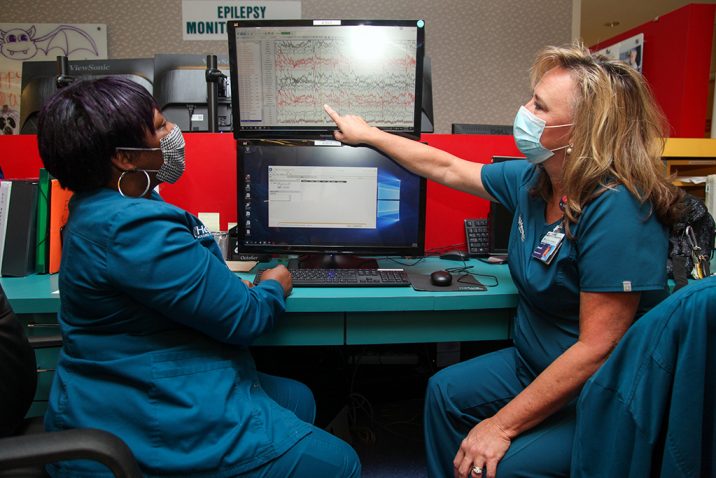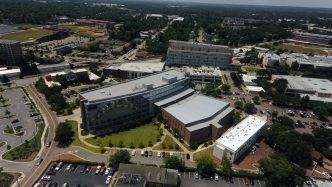This year’s EEG (electroencephalogram) Week, starting April 19, takes place after a full year of COVID-19 and the discovery of long-term effects for some of those who have been infected.
“COVID causes neurological deficits in the brain,” said Karen Barton, lead EEG technologist for neurodiagnositics with 30 years of experience at Augusta University Health.
This has been referred to as “long COVID,” aka experiencing side effects well after someone who was diagnosed as positive has tested negative for the virus.
“Usually we see this with patients that have had a long ICU stay with maximum medical support, for example time on a ventilator,” Barton explained. “These individuals are more likely to be those that may show a neurological impact related to their Covid illness.”
Typically, Barton records brain waves in patients with symptoms of stroke or seizures to find the electrical potential for further neurological events. In describing an EEG graph, she compares it to an EKG with an EEG having 21 squiggly lines (to an EKG’s one) or “channels.”
“We also have an epilepsy monitoring unit that is part of our department,” she said. “Our unit has six beds and primarily we have patients admitted to the unit who have uncontrollable seizures or new onset of seizures. Immediately when they come into the unit, we attach the full matrix of wires and start recording EEG for the entire time they are in the unit. In most cases, they need to be here three or four nights.”
For a while, Barton and her team saw a large number of COVID-19 patients, but the numbers have dropped off in recent months. COVID-19 is still commonly thought of as a respiratory disease but doctors are discovering it goes beyond that. Barton supports the recommendation that those who have had severe cases be aware that some new neurological symptoms may be related to COVID-19 and they should seek medical specialists with neurological expertise.
She said, “I feel we will continue to see an increase in need for neurodiagnositic testing in the future as patients realize the impact of COVID-19 on the brain.”
 Augusta University
Augusta University




